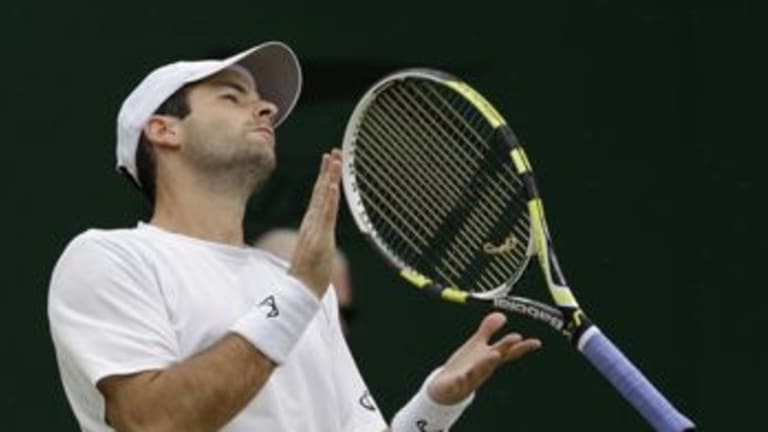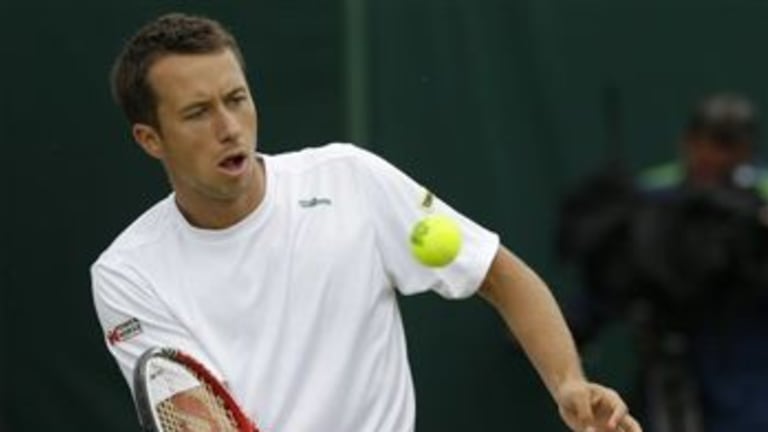When the sky briefly cleared and Brian Baker walked back on Court 12, he was up 30-40 on his opponent Philipp Kohlschreiber's serve. The two players had managed to get in four games before the rains had come. It was just long enough for the slow-starting Baker to be broken. Now he had a chance to get back on even terms.
The players took their positions across from each other in the ad court. Kohlschreiber served a ball that Baker believed was long. But chalk flew, and it was called in. Baker eyed the spot, looked up at the chair umpire, and shook his head as he walked reluctantly over to the deuce court. There, Kohlschreiber fired another serve that Baker believed may have been out. Again he listened for an out call in vain. It was another ace, and Baker walked back to the ad court shaking his head again. The tone had been set. It was going to be that kind of day.
Baker weathered five surgeries and five years away and still came back to tennis because he loved the sport too much to give it up. He must have known, despite the fairytale fashion in which his comeback has played out so far, that returning to tennis also meant returning to days like these.
Days when your undersized opponent hits 23 aces in three sets. When the angled volleys you’ve been making find the net instead of the open court. When you slip and fall going for an overhead, when the close calls don’t go your way, when a slice from your opponent lands on the baseline and dies in front of you.
“I felt like there a few points where I was in position to do something,” a frustrated Baker said afterward, “and the ball would literally just stop. But that’s grass-court tennis.”
Days when, on the most important point of the match, at 4-4 in the second tiebreaker, you hit one of your best forehand approach shots of the day, only to watch as your opponent tracks it down and sends up a towering lob that lands smack on the baseline.
Days, in other words, when you come out distinctly second best, and the only thing you can do is suck it up.
“He definitely came up with some good shots at the times he had to,” Baker said of Kohlschreiber, who never dropped serve. “I felt like any time I got a sniff, he would hit an ace on the line or hit one right inside the line.”
It wasn’t just Kohlschreiber’s serve that was clicking. Everything about his game was crisp. He hit 46 winners against just 12 unforced errors, and was 17 of 21 at the net. Nor was this performance a fluke. Kohlschreiber began his grass-court season with a win over Rafael Nadal in Halle, and he hasn’t lost a set at Wimbledon thus far. At 29, after 11 years on tour, he has reached his first Grand Slam quarterfinal, where he’ll play Jo-Wilfried Tsonga. He’s 1-5 lifetime against the Frenchman, but anything seems possible for Kohlschreiber at the moment.

